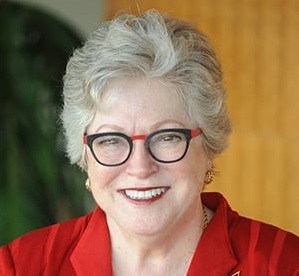 America’s theological schools and congregations have at times been uneasy partners. Some accuse the seminary of corrupting the faith of students, of being out of touch with day-to-day pastoral work and of being so liberal that its graduates are suspect. Theological schools volley back with questions about diminishing financial support, fewer ministry candidates and concern about adequate compensation for graduates and their families. Congregations and seminaries cannot get along without each other, yet suspicion flares as resources are fragile and the way forward is not clear.
America’s theological schools and congregations have at times been uneasy partners. Some accuse the seminary of corrupting the faith of students, of being out of touch with day-to-day pastoral work and of being so liberal that its graduates are suspect. Theological schools volley back with questions about diminishing financial support, fewer ministry candidates and concern about adequate compensation for graduates and their families. Congregations and seminaries cannot get along without each other, yet suspicion flares as resources are fragile and the way forward is not clear.
Fundamentalists inflicted many wounds on my former seminary, alleging doctrinal infidelity, especially as it related to the role of women in ministry. Faculty members and administrators rightly defended the integrity of their scholarship in the service of preparing reliable guides for churches. Many of us remember how that turned out!
“In some cases, theological clarity is so anemic in these congregations that entering seminarians have little confidence about what they do believe.”
Observers of denominational life in its many forms know that flashpoints ignite because of mutual misunderstanding of the distinct roles churches and seminaries perform. It is the role of the seminary to prepare leaders who can be a source of renewal for congregations because of their theological formation; it is the role of the churches to embody the Gospel in leitourgia (liturgy), koinonia (participation) and diakonia (service). The thicker the respectful relationship between the school that prepares congregational leaders and the churches that call these women and men, the more mutually beneficial that partnership can be.
How do churches and seminaries support one another? What is the nature of the church for which schools of theology are preparing ministers? Who is nurturing the calling of the next generation of ministers for seminaries to prepare?
Those have been among the questions a group of pastors and seminary leaders (a commission) has been exploring over the past nearly six months. Convened by the leadership of Cooperative Baptist Fellowship and facilitated by skilled leaders of Duke Center for Leadership, the process has been stimulating and evocative of new approaches to strengthening a closely linked vocation of cultivating the calling and the gifts and graces for ministry.
“There is a remarkable sense that our future is mutually interdependent, and we are committed to a more constructive relationship.”
We have listened to young adults talk about their vocational aspirations, their fears surrounding educational debt, their concern about finding supportive peers for the journey of ministry, their desire for ongoing mentoring, their ponderings about the mysteries of ministry placement and their frustration about finding a position if they are a sexual or ethnic minority. This seemed a wise approach – to listen before constructing systems or perchance solutions without the input of the next generation of ministers.
The ecosystem of congregations, judicatories and the institutions that prepare persons for ministry has been fraying across the denominational spectrum. Resources are not allocated toward seminaries as they once were, and many are struggling to maintain or achieve financial equilibrium. In addition, seminaries are attempting even more comprehensive forms of training as they cannot assume their students have deep formation by immersion in congregational life prior to coming to graduate theological education. In some cases, theological clarity is so anemic in these congregations that entering seminarians have little confidence about what they do believe.
One conversation partner (a committed layperson) remarked, “I had no idea seminaries were doing so many things!” Yes, we are doing many things. Sometimes it is catechetical work with first-generation Christians; other times is the work of healing as some students come to us with trauma, some inflicted by the church.
An interesting piece of data we learned is that students studying for ministry access mental health/counseling services on their campuses more than persons in other disciplines. Perhaps this is because they are more self-aware. Or perhaps it is simply the reality that life seems to hold more incessant demand than ever before with its pace of change and dizzying weight of expectations.
Thankfully, these gatherings have not been an exercise in blame, which I can remember happening in conversations of yore, e.g., “if you just supplied better graduates for our churches,” countered by “if you just sent us better ministry candidates from the churches,” ad nauseum. There is a remarkable sense that our future is mutually interdependent, and we are committed to a more constructive relationship.
When you gather a representative group of theological educators, pastors and laypersons in the same room, it may seem like a container for “words without end, amen. Amen.” There have been lots of words – spoken and written on sticky notes and easel sheets – and the iterative nature of the conversation has provided greater clarity about what is next. I have been impressed with the deep listening, the care for congregational life and new appreciation of the treasure that theological schools comprise in our common life.
The goal is to forge some concrete proposals when we gather again next March. I believe this is a propitious time for renewing the covenant between congregations and seminaries for our shared missional pursuit. In this time of Thanksgiving, I am grateful for this important work.
